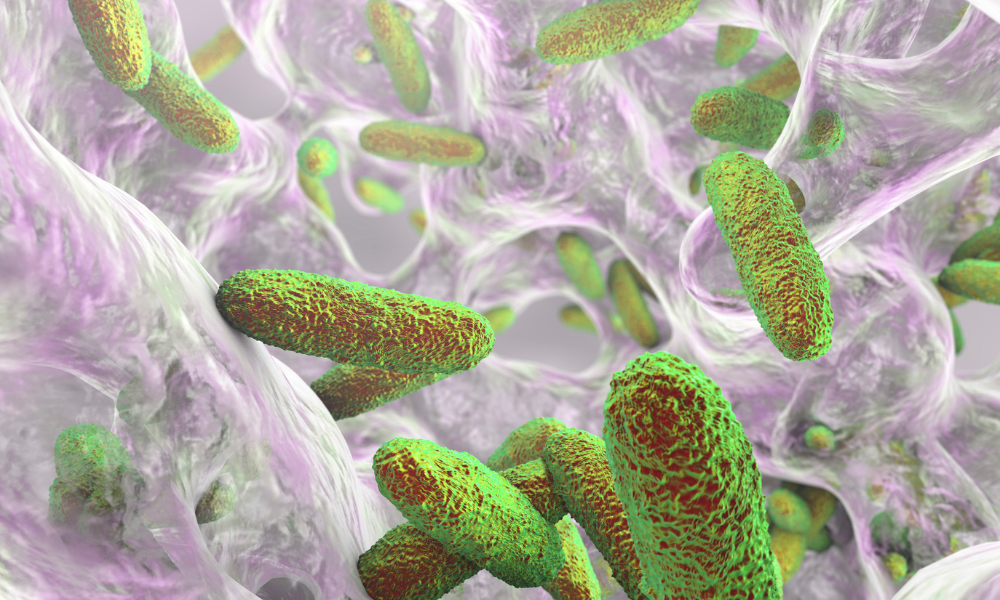Resources
Biofilm Testing: The Critical Step in Advancing Infection-Resistant Medical Devices

Infections related to medical devices remain a persistent and costly challenge in modern healthcare. Despite the advancement of antimicrobial materials and design innovations, biofilm formation continues to undermine the efficacy of many devices – contributing to patient complications, prolonged hospital stays, and increased clinician workload. Biofilm formation on medical devices remains a major barrier to infection prevention. In light of this, biofilm testing has become a pivotal step in early preclinical testing for medical device companies developing next-generation, infection-resistant products.
As medical technology evolves, so too must the strategies we use to combat device-associated infections. Comprehensive biofilm testing is an essential part of translating laboratory innovations into real-world solutions.
Biofilm Testing: Why It Matters for Medical Device Testing
Biofilms are complex communities of microorganisms that adhere to surfaces, including those of medical devices, where they form protective matrices that shield bacteria from both antibiotics and the host immune system. Once established, they are incredibly difficult to eradicate and can make infections associated with biofilm-forming bacteria notoriously difficult to treat, often leading to chronic or recurrent infections.
Traditional antimicrobial assays assess the effectiveness of agents against free-floating (planktonic) bacteria but fail to account for the resilience and adaptive resistance of bacteria in biofilm form. That’s why leading researchers are turning to robust biofilm models that reflect the clinical realities of device use.
The stakes are high: failure to account for biofilm risks during preclinical medical device testing can mean challenges down the road, including missed opportunities to prevent infections before they start. Therefore, biofilm testing is an indispensable tool for accurate evaluation of anti-infective strategies.
Comprehensive Testing: Informing Every Stage of Device Innovation
Comprehensive biofilm testing is critical at every stage of the medical device development pipeline:
- Early Research: Laboratory models simulate realistic conditions—such as dynamic fluid flow, varying nutrient levels, and host tissue interactions—to evaluate how devices perform in the presence of biofilm-forming pathogens.
- Prototype Optimization: Iterative testing of coatings and surface modifications allows researchers to fine-tune anti-biofilm properties, ensuring both efficacy and biocompatibility.
- Market Readiness: Rigorous biofilm testing accelerates time-to-market by demonstrating antimicrobial efficacy. This thorough evaluation not only speeds up development but also ensures that new devices are both safe and effective for real-world use.
This comprehensive approach accelerates the translation of anti-infective technologies, ultimately improving patient safety and reducing healthcare disparities.
Biofilm Disruption and Early Detection: The Next Frontier
As medical devices advance, the focus of biofilm testing will continue expanding from prevention and detection to the ultimate goal: a cure. Tackling biofilms and biofilm disruption is essential for overcoming persistent device-associated infections that negatively impact the patient are a cost to the healthcare system as a whole. Researchers are dedicated to developing strategies that actively dismantle established biofilms by moving beyond antimicrobial coatings and bacteria-responsive surfaces designed for prevention.
In the future, by integrating advanced sensing platforms, device-associated infections can be detected earlier, enabling timely intervention and more effective disruption of biofilms. This comprehensive approach not only enhances patient outcomes but also addresses healthcare disparities associated with devices and device infections. Ultimately, rigorous biofilm testing ensures that new devices with anti-infective properties can be successfully translated to medical use, bridging the gap between laboratory breakthroughs and real-world patient care.
Modern Biofilm Testing Now, and Its Future Trajectory
The world of infection-resistant medical devices is advancing rapidly, and while futuristic technologies like bacteria-responsive surfaces and wireless biosensors show exciting promise, many of them aren’t ready for widespread clinical use just yet. Fortunately, there are powerful tools available today to help medical device innovators move forward with confidence.
Modern biofilm testing services go well beyond traditional antimicrobial assays—offering robust evaluations of antimicrobial coatings, early-stage biofilm detection capabilities, and advanced materials testing that more accurately reflect how devices perform in real-world conditions. These proven biofilm testing approaches provide the actionable data needed now, while the next wave of innovation continues to develop.
Prioritizing Biofilm Testing for Safer, More Effective Medical Devices
To bring truly infection-resistant devices to market, developers must prioritize biofilm testing and evaluation from day one. By investing in comprehensive biofilm evaluation throughout the development pipeline, scientists and engineers can accelerate the creation of safer, more effective infection-resistant devices while de-risking development and reducing regulatory hurdles. It also ensures that breakthrough technologies are not limited to idealized lab settings but can perform under the real-world conditions of diverse patient populations.
Translating Innovation Into Impact with Comprehensive Biofilm Testing
Turning laboratory discoveries into effective, accessible devices requires not only advanced biofilm testing methods but also interdisciplinary collaboration. By partnering with contract research organizations like iFyber, scientists gain access to state-of-the-art biofilm models, expert guidance in test design, and comprehensive data to support regulatory submissions and market adoption. This collaborative approach ensures that infection-resistant medical devices are developed efficiently, rigorously, and with the ultimate goal of improving outcomes for all patients.
iFyber’s deep expertise in medical device testing and a scientific team that understands the intricacies of bacterial behavior supports researchers and developers through every phase of the process. From custom biofilm assays to device-specific simulations, iFyber’s biofilm testing services are designed to inform smarter, faster decision-making.
To explore biofilm testing or learn about other preclinical testing services that bring your innovations to life, contact iFyber today.
